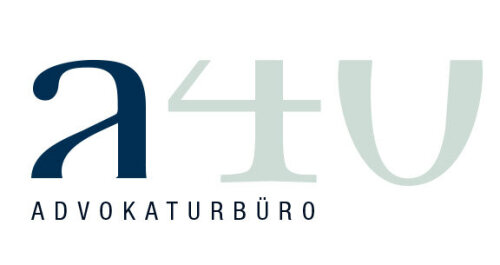Best Collaborative Law Lawyers in Bern
Share your needs with us, get contacted by law firms.
Free. Takes 2 min.
Free Guide to Hiring a Family Lawyer
List of the best lawyers in Bern, Switzerland
About Collaborative Law in Bern, Switzerland:
Collaborative Law in Bern, Switzerland is a method of resolving legal disputes outside of the courtroom through cooperation and negotiation. It involves both parties and their respective lawyers working together to find a mutually beneficial solution. This approach promotes open communication, transparency, and respect between all parties involved.
Why You May Need a Lawyer:
You may need a lawyer in Collaborative Law situations when you are facing a legal dispute that requires a structured and collaborative approach to resolution. This could include issues such as divorce, child custody, inheritance disputes, or business disagreements. A lawyer can provide you with legal guidance, advocacy, and representation throughout the collaborative process to ensure your rights are protected.
Local Laws Overview:
In Bern, Switzerland, Collaborative Law is governed by the Swiss Civil Code and other relevant legislation. The key aspects of local laws that are particularly relevant to Collaborative Law include the principles of voluntary participation, confidentiality, and the requirement for both parties to have independent legal representation. These laws aim to facilitate a fair and equitable resolution of disputes through collaboration and negotiation.
Frequently Asked Questions:
1. What is Collaborative Law?
Collaborative Law is a method of resolving legal disputes outside of court through cooperation and negotiation between parties and their lawyers.
2. How does Collaborative Law differ from traditional litigation?
Collaborative Law focuses on cooperation and negotiation to reach a mutually beneficial solution, while traditional litigation involves resolving disputes through the court system.
3. Is Collaborative Law binding?
Yes, once an agreement is reached through Collaborative Law, it is legally binding and enforceable in court.
4. Do I need a lawyer for Collaborative Law in Bern?
Yes, it is recommended to have a lawyer represent you in Collaborative Law proceedings to ensure your rights are protected and to provide legal guidance throughout the process.
5. How long does the Collaborative Law process take?
The length of the Collaborative Law process can vary depending on the complexity of the dispute and the willingness of both parties to cooperate. It can typically take several months to reach a resolution.
6. What are the advantages of Collaborative Law?
The advantages of Collaborative Law include a faster, less costly, and more amicable resolution of disputes compared to traditional litigation. It also allows parties to maintain control over the outcome.
7. Can Collaborative Law be used for any type of legal dispute?
Collaborative Law is commonly used for family law matters such as divorce and child custody, but it can also be applied to business disputes, estate planning, and other civil disputes.
8. What happens if an agreement cannot be reached through Collaborative Law?
If an agreement cannot be reached through Collaborative Law, both parties will need to pursue alternative dispute resolution methods or take the matter to court for resolution.
9. Is Collaborative Law confidential?
Yes, Collaborative Law proceedings are confidential, and any discussions or negotiations conducted during the process cannot be used as evidence in court.
10. How can I find a Collaborative Law lawyer in Bern, Switzerland?
You can search for local Collaborative Law lawyers in Bern through legal directories, bar associations, or by asking for referrals from friends or family members who have used Collaborative Law services.
Additional Resources:
If you are in need of legal advice or assistance related to Collaborative Law in Bern, Switzerland, you can contact the Swiss Bar Association (FSA), the Bern Bar Association, or local law firms specializing in Collaborative Law for further guidance and support.
Next Steps:
If you require legal assistance in Collaborative Law, it is recommended to schedule a consultation with a Collaborative Law lawyer in Bern to discuss your specific situation and explore your options for resolution. Your lawyer can guide you through the Collaborative Law process and advocate on your behalf to ensure a fair and equitable outcome.
Lawzana helps you find the best lawyers and law firms in Bern through a curated and pre-screened list of qualified legal professionals. Our platform offers rankings and detailed profiles of attorneys and law firms, allowing you to compare based on practice areas, including Collaborative Law, experience, and client feedback.
Each profile includes a description of the firm's areas of practice, client reviews, team members and partners, year of establishment, spoken languages, office locations, contact information, social media presence, and any published articles or resources. Most firms on our platform speak English and are experienced in both local and international legal matters.
Get a quote from top-rated law firms in Bern, Switzerland — quickly, securely, and without unnecessary hassle.
Disclaimer:
The information provided on this page is for general informational purposes only and does not constitute legal advice. While we strive to ensure the accuracy and relevance of the content, legal information may change over time, and interpretations of the law can vary. You should always consult with a qualified legal professional for advice specific to your situation.
We disclaim all liability for actions taken or not taken based on the content of this page. If you believe any information is incorrect or outdated, please contact us, and we will review and update it where appropriate.














